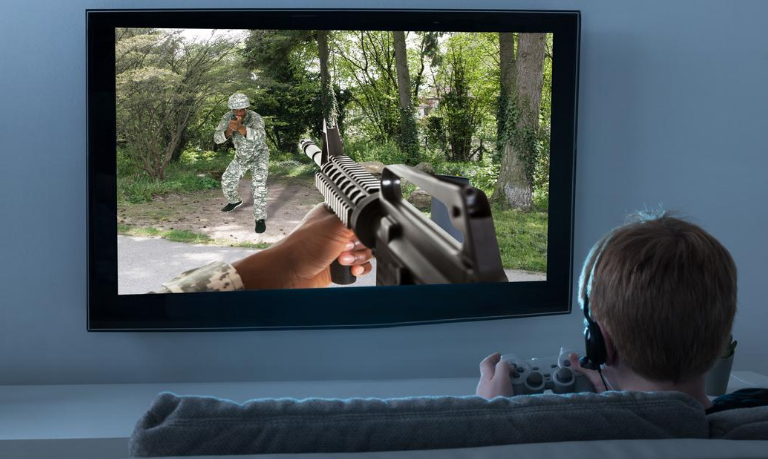
It’s a debate that has raged for decades, since the very earliest days of video games and consoles, and it has only increased in ferocity over time. To many, it seemed self-evident; portrayals of excessively violent acts in video games influence young minds and cause their actions in the real world to be informed by the casual violence that they encounter in these games. Worse even than the passive experience of watching a movie or TV show, in these games it is the player who is controlling the violence on the screen. Surely it must be having a detrimental effect on our youth?
There are plenty of computer-based activities that are feared to be bad for society, and in particularly for young people, but a look at the stats reveals that many of these concerns are either baseless or exaggerated. Take online poker, and the worry that it could create a whole new generation of compulsive poker players. What we actually see is a reduction in the number of players under the age of 25 taking part in competitions. Still, it’s imperative to stay safe, so if you want the best Canadian poker sites, then make sure to consult https://new-casino.ca/poker/ to find a secure one.
The rise of video games, into the multi-billion dollar industry that it is today, has happened in tandem with a rise in apparently random acts of gun violence in the USA. It’s a correlation that is hard to ignore, and many politicians and commentators established the link in our collective consciousness well before any actual research was conducted to see if there was casality involved.
It’s only this year, two decades after the horrors of the Columbine High shooting, that some real evidence is actually being created. And the findings vindicate what the defenders have been saying from the start; there is no link between video games and violent behaviour. And given that mass shootings are a uniquely American problem, whereas gaming is popular all over the world, this shouldn’t really come as a surprise. So why has this idea persisted for so long?
For one, gaming is a convenient scapegoat for politicians who would prefer not to look more deeply at the issues. Gun control is the hot potato topic of our time, and blaming gaming is a handy way to steer clear of that debate. But it wouldn’t be such an effective political ruse if it didn’t feel so entirely plausible, and that’s why this is a debate that is far from over. Shooting, maiming and running people over with your car on screen – surely this must be encouraging violence in real life? How, many people argue, could it not?
Added to this, gamer culture has garnered a rather toxic reputation in recent years. Stereotypes abound of angry, basement-dwelling young men, who spew crude and aggressive trash-talk and are sexist and otherwise bigoted. This cliché is undoubtedly unfair to most gamers, but it has increased public antipathy towards video games and those who play them. And while there may be an obnoxious minority in the community, this still doesn’t mean that there’s any connection to real life violence.
Bolstered by this year’s new research, the game industry will keep going from strength to strength. The number of people who enjoy these games continues to rise, and are becoming more vocal in their support. These days, entire leagues exist for playing competitive video games and the prize pools are enormous. So, the debate will slowly start to become less relevant as the argument loses credibility. Politicians may still use it as a handy excuse to avoid a difficult topic, but at some point we will be compelled to accept the evidence that is in front of us. And if gamers could mobilize as a voting bloc, then maybe the politicians would stop altogether.


